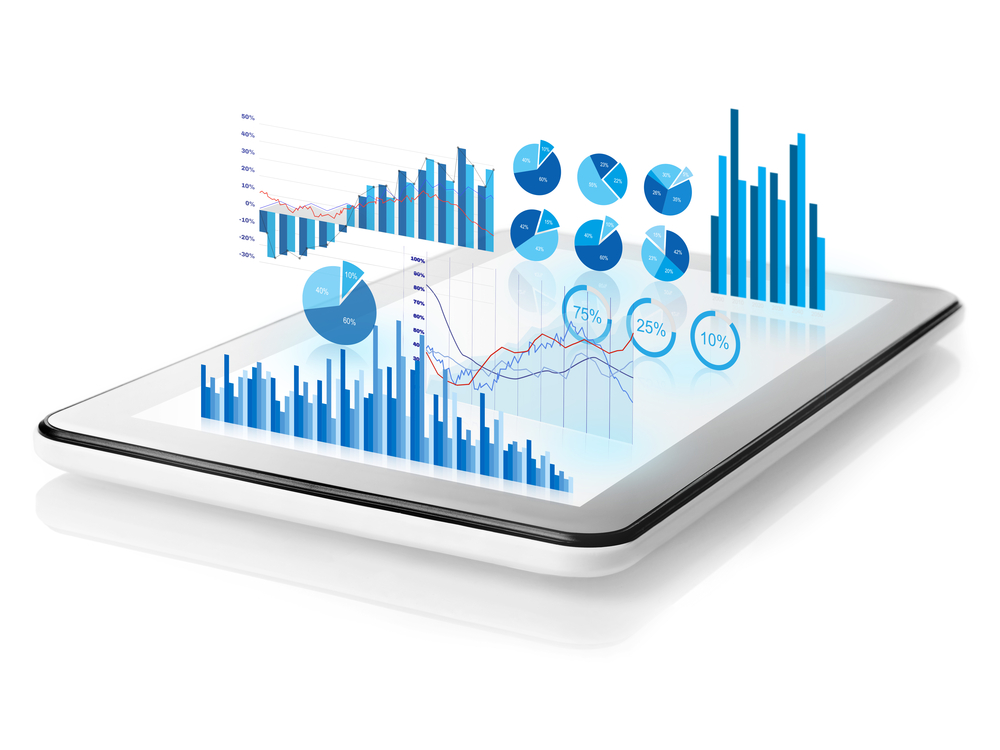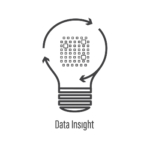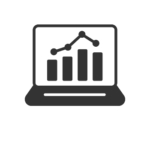What is Business Intelligence and Analytics?
Business intelligence and analytics refer to the gathering of your business’s current and historical data in order to measure and analyse performance. This is a holistic approach which accounts for data across multiple sources, including the departments of your business, customer behaviour, and competitor data.
Business intelligence and analytics is made more accessible by business intelligence tools, which automate this process. The results of business intelligence and analytics can be used to create actionable insights which help the decision-making process within your business.

Types of Business Intelligence Tools
There are many types of business intelligence tools to meet a range of requirements. Some of the most popular business intelligence tools include:
Digital Dashboards
Digital dashboards are interactive platforms which collate and analyse data from multiple sources, presenting this on one intuitive platform to be accessed by relevant personnel. Digital dashboards utilise data sets or can be integrated directly with databases, spreadsheets, and more, in order to do this.
Advanced Spreadsheets
Advanced spreadsheets utilise a familiar interface, similar to Excel, in order to structure and analyse data which is pulled into the spreadsheet. Whilst advanced spreadsheets offer powerful capabilities, they need to be manually operated by a skilled person and are more suited to small volumes of data.
Reporting Tools
As the name suggests, reporting tools automate the process of collating, organising, and processing raw data into easy-to-read reports and dashboards which can be shared throughout your organisation.
Online Analytical Processing Tools
Online analytical processing tools, otherwise known as OLAP tools, collate data from multiple sources and pull it into a data warehouse, in order to further organise and categorise the information in preparation for analysis.
Data Visualisation Software
This software can be used in conjunction with reporting tools in order to present data in a simple and engaging format. This can be through the use of graphs, charts, and maps, making data easy to understand and share.
Mobile BI Software
This software makes business intelligence available on your mobile phone, so data can be accessed wherever, whenever. Mobile business intelligence is great for flexible work schemes and working on the go.
Data Warehousing Tools
Data warehousing refers to the storage of data from multiple sources in a single location; this can be completed with a data warehousing tool. Data warehouses are suitable for large volumes of data, which can be further analysed using OLAPs, reporting tools, and more.
Data Mining Tools
Data mining tools are used to identify patterns and trends in data. By identifying patterns and trends in financial data, customer behaviour data, and productivity data, you can predict and plan for outcomes.
Decision Intelligence
Decision intelligence software can be used to help companies make informed decisions through the use of artificial intelligence and business intelligence data.
How Business Intelligence Tools Help Decision Making
The purpose of business intelligence software is to improve and aid the decision-making process across a business by providing a holistic and informed performance overview. By measuring performance, identifying trends, and predicting outcomes, business intelligence provides companies with the data they need to take definitive action.

Gain a Holistic Understanding
Business intelligence enables key decision-makers to gain a wider-ranging and deeper understanding of all departments of their business and the wider market, which can be used to inform the decisions they make.

Improve Processes and Standards
By tracking KPIs across all departments, business intelligence highlights areas for improvement, which can be used to make the necessary decisions for improving processes and operations. This in turn can be used to meet industry standards and provide a better service overall for clients.

Daily Tracking
Day-to-day performance can be tracked and drilled down into business intelligence, compared to monthly or annual reports which are unlikely to contain the same levels of detail.

Real-Time Intelligence
Business intelligence software provides real time data, which can be utilised by sales departments for the most up-to-date insights on customer behaviour, sales department data, logistics and more, whilst they are working on the go.

Remove Guesswork
Business intelligence removes any guesswork associated with the decision-making process by presenting the most holistic data overview available, which can be rolled up, drilled down, and sliced and diced for actionable insights.
What are the Advantages of Business Intelligence Tools?
Whilst business intelligence tools are designed to aid the decision-making process, their uses and advantages go far beyond this. Here are some of the advantages of business intelligence tools…
Eliminate Data Silos
Data silos occur when data is isolated within one department, such as HR or finance. This reduces the availability of data across a company as well as the opportunity to view data holistically, meaning data is not an accurate reflection of business performance as a whole.
Easy to Understand Data
With the data visualisation capabilities offered by business intelligence tools, stakeholders and team members who may not necessarily understand raw data can access and easily interpret visual data presented as graphs and charts.
This instils the confidence of stakeholders, as well as the understanding of employees, for greater unity and transparency.
Get Ahead of the Competition
With the collation of data from the wider industry, including competitor data and customer behaviour, you can get ahead of your competition by making more informed decisions and accurate projections.
Is Business Intelligence in Demand?
Business intelligence, in some form, has always been prevalent – whilst it used to be undertaken manually, today it is automated with the help of software for quicker, easier and more accurate performance analysis. There is a demand for business intelligence software as the marketplace becomes increasingly competitive; this is true for all sectors, including tech, finance, manufacturing, retail and more. With a range of business intelligence tools, it can be hard to decide which solution is best suited to your business. Consider your current processes and how they could benefit from a streamlined solution.
Minster Micro, with over 40 years of experience, is dedicated to providing top-of-the-line business intelligence tools to help organizations make informed decisions based on accurate data and a holistic view of their performance.
Our suite of business management software empowers businesses to optimise their operations, reduce costs, and improve productivity. We offer a range of solutions tailored to meet the unique needs of various industries. Our software solutions can assist you in streamlining your business processes, increasing efficiency, and reducing errors.
Partnering with Minster Micro means gaining access to cutting-edge technology and the expertise of seasoned professionals. Our business intelligence tools and IT services are designed to help you achieve your goals and stay ahead of the competition. Contact us today to learn more about how we can help your business thrive.